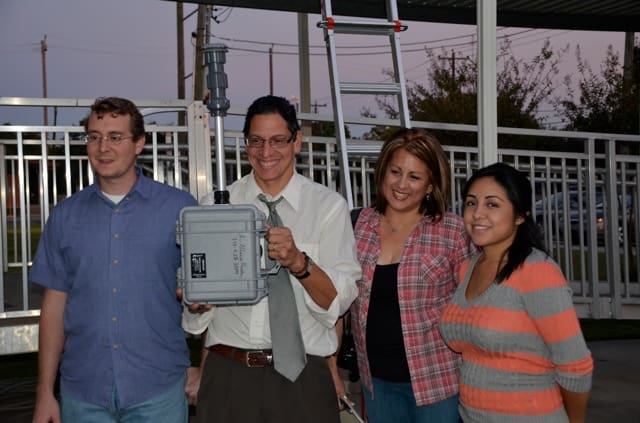Air Pollution and Public Health in Galena Park
In 2013, Air Alliance Houston initiated a community air monitoring project at Galena Park. The project included a community health impact survey, mapping workshops, and community air monitoring activities.
What We Did
Galena Park, Texas, is an environmental justice community of some 10,000 residents on the Houston Ship Channel. It is a community in which concerns about pollution and public health run high due to its proximity to the petrochemical industry, freight rail lines, and high traffic roadways. The city’s main road, Clinton Drive, is used by heavy-duty vehicles hauling freight to and from the Port of Houston.
However, a lack of resources and knowledge leads to very little public engagement on issues that impact environmental quality and health. Although citizens are worried about their health, there is little sense that they can personally affect change.
In 2013, Air Alliance Houston, in partnership with Global Community Monitor, initiated a community air monitoring project at Galena Park. The project included a community health impact survey, mapping workshops, and community air monitoring activities.


Air monitoring was conducted over the course of a year for fine particulate matter and elemental carbon, a surrogate for diesel pollution. An independent report was produced by a graduate student at the Rice University Department of Statistics.
The results showed that diesel pollution presents an unacceptable health risk in Galena Park. Cancer risk due to diesel pollution exposure may exceed 1 in 10,000, while many scientists and health professionals consider an acceptable cancer risk to be one additional cancer case in one million people. Fine particulate matter pollution may exceed federal health standards as well.
The report recommended that Galena Park take immediate action to reduce diesel and particulate matter pollution in order to protect its residents’ health. Our suggestions included taking aggressive steps to limit diesel pollution by banning older, dirty trucks and diverting trucks from Galena Park roads. Another suggestion was for Galena Park to enforce a city ordinance that would restrict heavy-duty trucks from idling for more than five minutes at a time. We also recommended further testing to determine the extent of air pollution in Galena Park and its impacts.

The results of the project helped bolster advocacy efforts to implement an anti-idling ordinance in Galena Park later in the year. Similar ordinances were subsequently passed in the cities of Houston and Jacinto City.
Cancer risk from diesel in Galena Park
Houston Chronicle, July 8, 2014
Pollution From Ship Channel and Port Traffic Affects Galena Park
State Impact, July 8, 2014
GALENA PARK: Air quality report cites health dangers
North Channel Star, July 23, 2014
Air Pollution and Public Health in Galena Park (Report July 2014)
